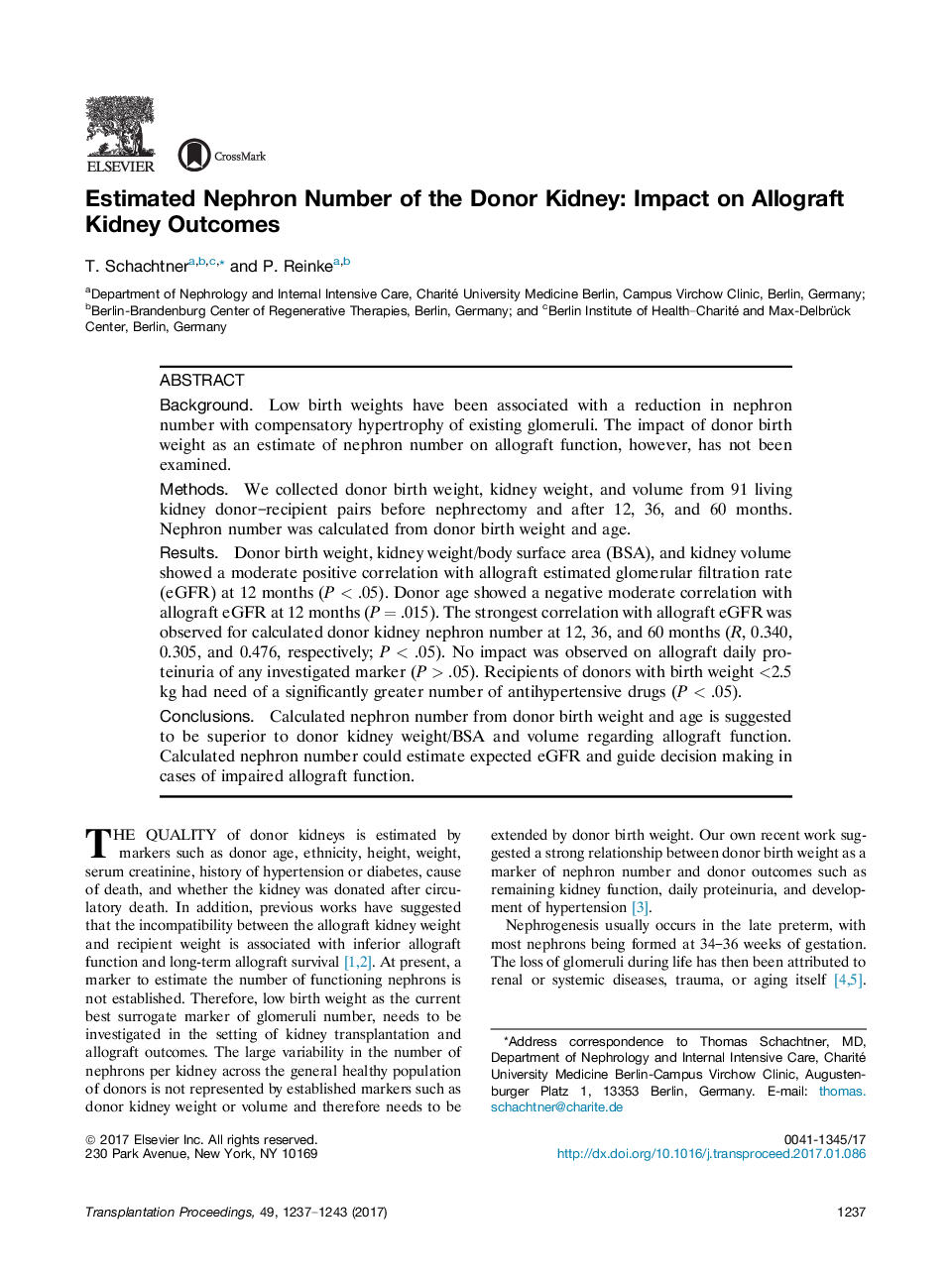| Article ID | Journal | Published Year | Pages | File Type |
|---|---|---|---|---|
| 5728674 | Transplantation Proceedings | 2017 | 7 Pages |
â¢Calculated nephron number from birth weight correlates with allograft function.â¢Calculated nephron number is superior to kidney weight and volume as a marker for allograft function.â¢Calculated nephron number may be implemented to estimate expected GFR.
BackgroundLow birth weights have been associated with a reduction in nephron number with compensatory hypertrophy of existing glomeruli. The impact of donor birth weight as an estimate of nephron number on allograft function, however, has not been examined.MethodsWe collected donor birth weight, kidney weight, and volume from 91 living kidney donor-recipient pairs before nephrectomy and after 12, 36, and 60 months. Nephron number was calculated from donor birth weight and age.ResultsDonor birth weight, kidney weight/body surface area (BSA), and kidney volume showed a moderate positive correlation with allograft estimated glomerular filtration rate (eGFR) at 12 months (P < .05). Donor age showed a negative moderate correlation with allograft eGFR at 12 months (P = .015). The strongest correlation with allograft eGFR was observed for calculated donor kidney nephron number at 12, 36, and 60 months (R, 0.340, 0.305, and 0.476, respectively; P < .05). No impact was observed on allograft daily proteinuria of any investigated marker (P > .05). Recipients of donors with birth weight <2.5 kg had need of a significantly greater number of antihypertensive drugs (P < .05).ConclusionsCalculated nephron number from donor birth weight and age is suggested to be superior to donor kidney weight/BSA and volume regarding allograft function. Calculated nephron number could estimate expected eGFR and guide decision making in cases of impaired allograft function.
